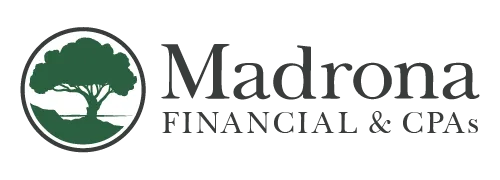
The Money Conversation Women Can’t Afford to Skip
Achieving financial literacy is vital for anyone to unlock long-term economic freedom, potential in business, and lasting security in life. Accepting that there are challenges to economic viability unique to women allows women to attack those challenges with confidence, purpose, and precision. Our future is not merely dictated by rates of return; it’s also about overcoming real-life circumstances with confidence and clarity.
Here’s what’s different for women—and where to plan wisely.
Unique Hurdles for Women Entrepreneurs
In the U.S., women now own 4 in 10 businesses, yet female entrepreneurs face greater difficulty securing funding, accessing credit, and building scalable retirement plans. Forbes reports that in 2023 women received less than 3% of all venture capital funding, and are more likely to rely on personal savings or informal credit to start or grow a business. Additionally, because many women entrepreneurs focus on reinvesting in the business, they often underfund their own retirement. Unlike corporate employees with built-in retirement plans, women business owners must self-create systems for income protection, succession, and long-term wealth building—all while managing the unique financial headwinds women face.The High Cost of Earning Less and Giving More
Many women earn less than men throughout their careers, especially mothers and women of color. Lower pay means smaller retirement contributions, less employer matching, and reduced compounding over time. Women are far more likely to experience career breaks for caregiving—whether for children or aging parents—further reducing earnings and retirement savings. These gaps also impact Social Security, which is based on your highest 35 years of income. If some years include little or no earnings, your benefit goes down. The result? The average woman receives $1,637 per month in Social Security, while the average man gets $2,020—a gap of $383 monthly or nearly $91,920 over a 20-year retirement. Yet women typically need their money to last 5+ years longer due to longer life expectancy.Under-Investing
While women are often excellent savers, studies show they’re less likely to invest excess cash compared to men. According to Fidelity’s 2021 Women and Investing Study, only 33% of women see themselves as investors, even though nearly 70% are managing household budgets or savings. This hesitation around investing leads many women to hold excess cash in savings accounts or money markets, where returns historically barely outpace inflation. The cost of this conservatism adds up over time.Left Out of the Conversation
In many households, men still lead financial decision-making. According to the 2021 Fidelity Study, Couples & Money, only 19% of women say they are the primary financial decision-maker in their household, and more than 1 in 5 women say they have little to no involvement in long-term financial decisions like retirement planning or investments. The problem? 75% of women will outlive their husbands, and many will take over the finances alone for the first time in widowhood or divorce. When women aren’t actively involved in financial planning, they’re more likely to feel unprepared, overwhelmed, or regretful later on.
What You Can Do Today
Planning around the challenges women face requires attention and intention. To ultimately feel confident and in control as you navigate life’s most important decisions, it’s vital to blend both quantitative metrics with qualitative insights. Whether you need solutions focused on real estate, executive compensation, selling a business, planning for retirement, outliving a spouse, or building your confidence after divorce, these are high-stakes moments that demand more than a Google search or generic advice.
DISCLOSURES:
The information, suggestions, and recommendations included in this material is for informational purposes only and cannot be relied upon for any financial, legal or insurance purposes. Madrona Financial Services will not be held responsible for any detrimental reliance you place on this information. It is agreed that use of this information shall be on an “as is” basis and entirely at your own risk. Additionally, Madrona Financial Services cannot and does not guarantee the performance of any investment or insurance product. Insurance products are offered through Madrona Insurance Services, LLC, a licensed insurance agency and affiliate of Madrona Financial Services. Madrona Insurance Services and individual advisors affiliated with Madrona Insurance Services and Madrona Financial Services receives commissions on the sale of insurance products. Clients are not required to purchase insurance products recommended or to otherwise implement financial advice through Madrona affiliates. When we refer to preparation and filing of tax returns, tax returns are prepared and filed by our wholly-owned sister company Bauer Evans, Inc. P.S., a licensed certified public accounting firm. Madrona Financial Services, LLC is a registered investment adviser with the SEC. Our registration with the SEC or with any state securities authority does not imply a certain level of skill or training. Madrona Financial & CPAs is a registered trade name used singly and collectively for the affiliated entities Madrona Financial Services, LLC (“Madrona”) and Bauer Evans, Inc., P.C. (“Bauer Evans”). Investment advisory services are provided through Madrona. CPA services are provided through Bauer Evans. While it's essential to optimize your tax situation, it's equally important to comply with tax laws and regulations. Always ensure that your tax-saving strategies are legal and appropriate for your financial situation.

“Rooted In The 7 Areas That Sustain Wealth”
Everett Corporate Office
2911 Bond St Suite 200
Everett, WA 98201
Phone: 1 (844) MADRONA
Mountlake Terrace Office
6100 219th St SW, Suite 480
Mountlake Terrace, WA 98043
Phone: 1 (844) MADRONA
Park City Office
4554 N. Forestdale Dr. Unit 28
Park City, Utah 84098
Phone: 1 (844) MADRONA
Tacoma Office
1201 Pacific Avenue Suite 600
Tacoma, WA 98402
Phone: 1 (844) MADRONA
Kirkland Office
3933 Lake Washington Blvd NE, Suite 350
Kirkland, WA 98033
Phone: 1 (844) MADRONA
Cottonwood Heights Office
2825 E Cottonwood Pkwy Suite 500
Cottonwood Heights, UT 84121
Phone: 1 (844) MADRONA

